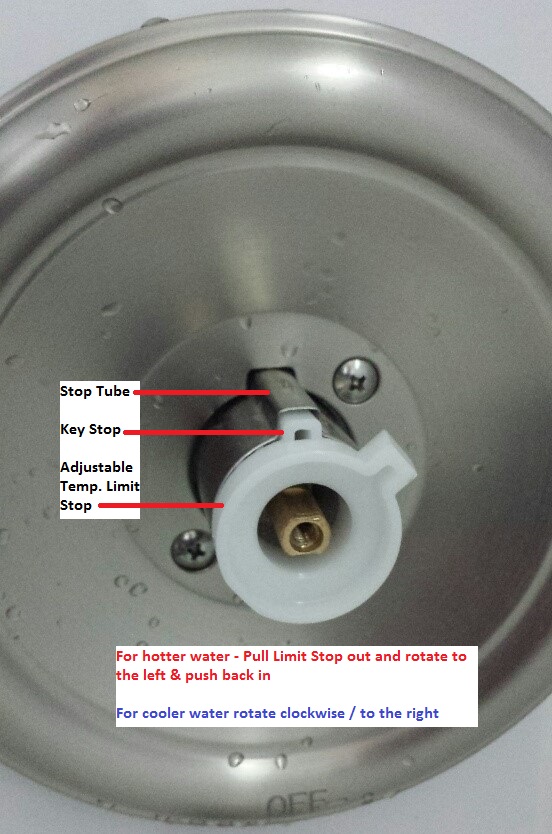In today’s fast-paced world, taking a hot shower can be a luxurious escape from the pressures of the day. However, if your shower is not producing water that’s hot enough to ease your stress and relax your muscles, it can be frustrating. Fortunately, there are several steps you can take to make the water hotter in your shower. In this comprehensive guide, we will explore various methods to help you achieve the perfect hot shower experience.
1. Check Your Water Heater:
The first step to ensuring hot water in your shower is to check your water heater. Over time, sediment can build up at the bottom of the tank, reducing its efficiency. Flushing the water heater can help remove this sediment, allowing it to heat the water more effectively. Additionally, adjusting the temperature setting on the water heater itself can increase the hot water output to your shower.
2. Insulate Hot Water Pipes:
Insulating the hot water pipes in your home can help maintain the temperature of the water as it travels from the water heater to your shower. This means less heat is lost through the pipes, allowing hotter water to reach your shower. Insulation sleeves or wraps designed specifically for hot water pipes are readily available and can be easily installed without professional assistance.
3. Increase Water Heater Capacity:
If you frequently find yourself running out of hot water during longer showers, you might want to consider upgrading to a water heater with a larger capacity. A larger tank or a tankless water heater can provide a more consistent supply of hot water, ensuring that you can enjoy a hot shower for as long as you desire.
4. Adjust Shower Valve:
Sometimes the problem may not be with the water heater, but rather with the shower valve itself. If the valve is not fully open, it can restrict the flow of hot water, resulting in lukewarm showers. Checking and adjusting the shower valve to allow maximum hot water flow can significantly improve the temperature of the water in your shower.
5. Use a Low-Flow Showerhead:
Switching to a low-flow showerhead can also help make the water hotter in your shower. These specially designed showerheads restrict water flow, allowing for more hot water to be delivered to your shower. Not only does this increase the temperature of the water, but it also conserves water, making it an eco-friendly choice.
6. Install a Thermostatic Mixing Valve:
A thermostatic mixing valve can be installed in your shower to help regulate and maintain the water temperature. This valve mixes hot and cold water to ensure a consistent temperature output, even when there are fluctuations in the water supply. By installing this valve, you can achieve a consistently hotter shower without the risk of scalding.
7. Repair or Replace Shower Cartridges:
If you have a single-handle shower faucet, the issue of not getting hot enough water might be due to a faulty or worn-out cartridge. Replacing the cartridge can help restore the proper temperature control, allowing you to enjoy a hotter shower. Alternatively, if your shower has separate hot and cold handles, you might need to adjust or replace the individual cartridges to regulate the hot water flow.
8. Time Your Showers:
Timing your showers can also help ensure that you get consistently hot water. If other household activities, such as running the dishwasher or washing clothes, are using hot water at the same time, it can affect the temperature of the water reaching your shower. By scheduling your shower when hot water demand is low, you can increase the likelihood of getting hotter water.
9. Consider a Point-of-Use Water Heater:
If making adjustments to your existing water heater does not provide the desired results, you might want to consider a point-of-use water heater. These compact units can be installed near the shower and provide instant, on-demand hot water. They are a great option for enhancing the hot water supply to a specific location in your home without affecting the entire water heating system.
10. Seek Professional Assistance:
If after trying the above methods, you still find that your shower water is not as hot as you’d like, it might be time to seek professional help. A licensed plumber or water heating specialist can assess your system to identify any underlying issues and provide tailored recommendations for improving the hot water supply to your shower.
By following these valuable tips and taking the necessary steps, you can ensure that your showers are consistently hotter and more enjoyable. From simple adjustments to more complex installations, there are various solutions available to help you achieve the perfect hot water experience in your shower.
Frequently Asked Questions For How To Make Water Hotter In Shower?
How Can I Make My Shower Water Hotter?
To make your shower water hotter, try increasing the temperature setting on your water heater or adjusting the thermostatic valve in your shower.
Why Is My Shower Water Not Hot Enough?
If your shower water is not hot enough, it could be due to a variety of reasons such as a malfunctioning water heater, a faulty thermostatic valve, or mineral buildup in the pipes.
What Temperature Should My Shower Water Be?
The ideal temperature for shower water is around 100 to 105 degrees Fahrenheit, as it provides a comfortable and soothing bathing experience.
How Can I Troubleshoot A Cold Shower Problem?
To troubleshoot a cold shower problem, check if the water heater is functioning properly, inspect the thermostatic valve, ensure there are no leaks or obstructions in the pipes, and consider increasing the water heater temperature setting.

